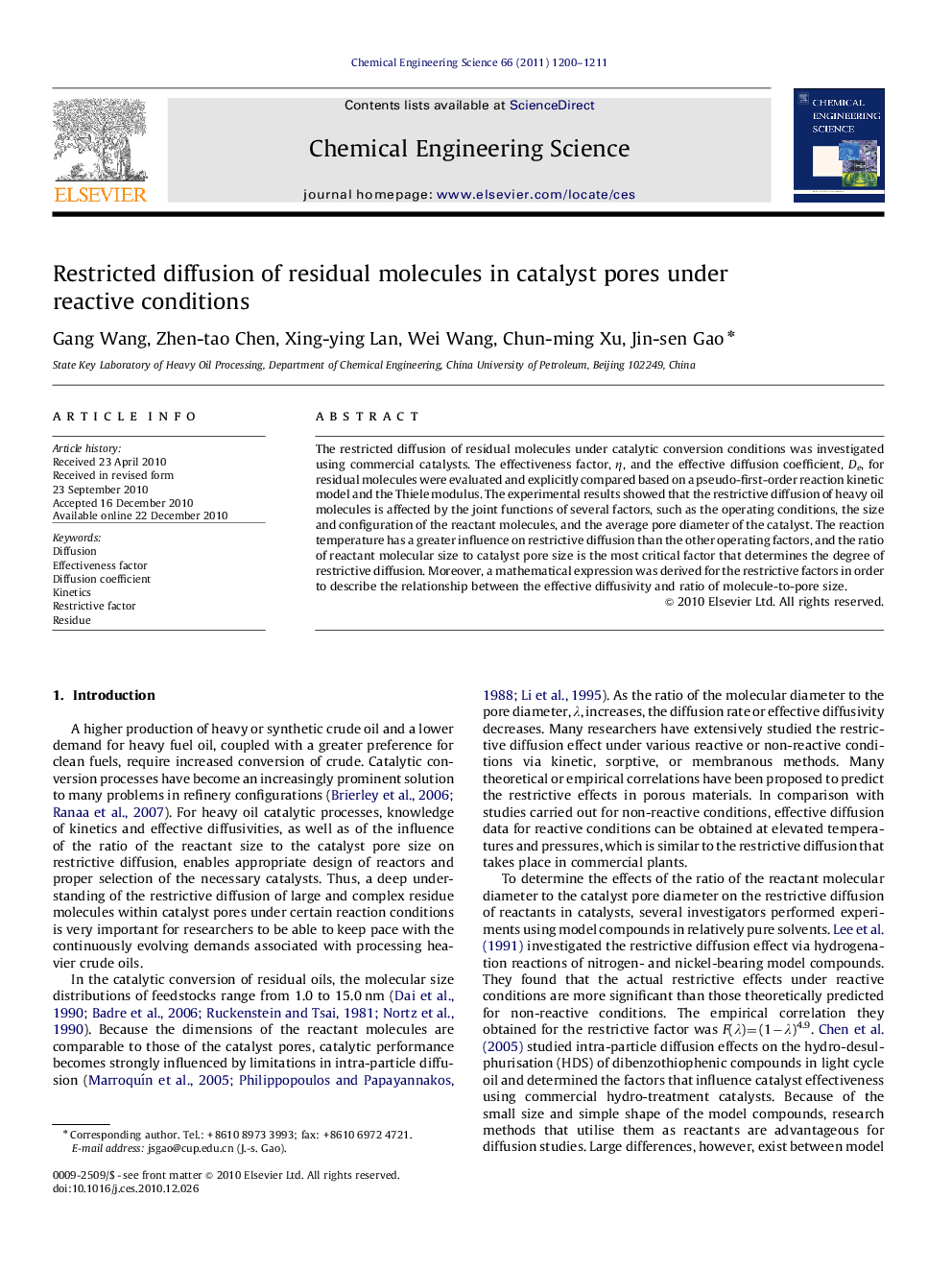| Article ID | Journal | Published Year | Pages | File Type |
|---|---|---|---|---|
| 156861 | Chemical Engineering Science | 2011 | 12 Pages |
The restricted diffusion of residual molecules under catalytic conversion conditions was investigated using commercial catalysts. The effectiveness factor, η, and the effective diffusion coefficient, De, for residual molecules were evaluated and explicitly compared based on a pseudo-first-order reaction kinetic model and the Thiele modulus. The experimental results showed that the restrictive diffusion of heavy oil molecules is affected by the joint functions of several factors, such as the operating conditions, the size and configuration of the reactant molecules, and the average pore diameter of the catalyst. The reaction temperature has a greater influence on restrictive diffusion than the other operating factors, and the ratio of reactant molecular size to catalyst pore size is the most critical factor that determines the degree of restrictive diffusion. Moreover, a mathematical expression was derived for the restrictive factors in order to describe the relationship between the effective diffusivity and ratio of molecule-to-pore size.
